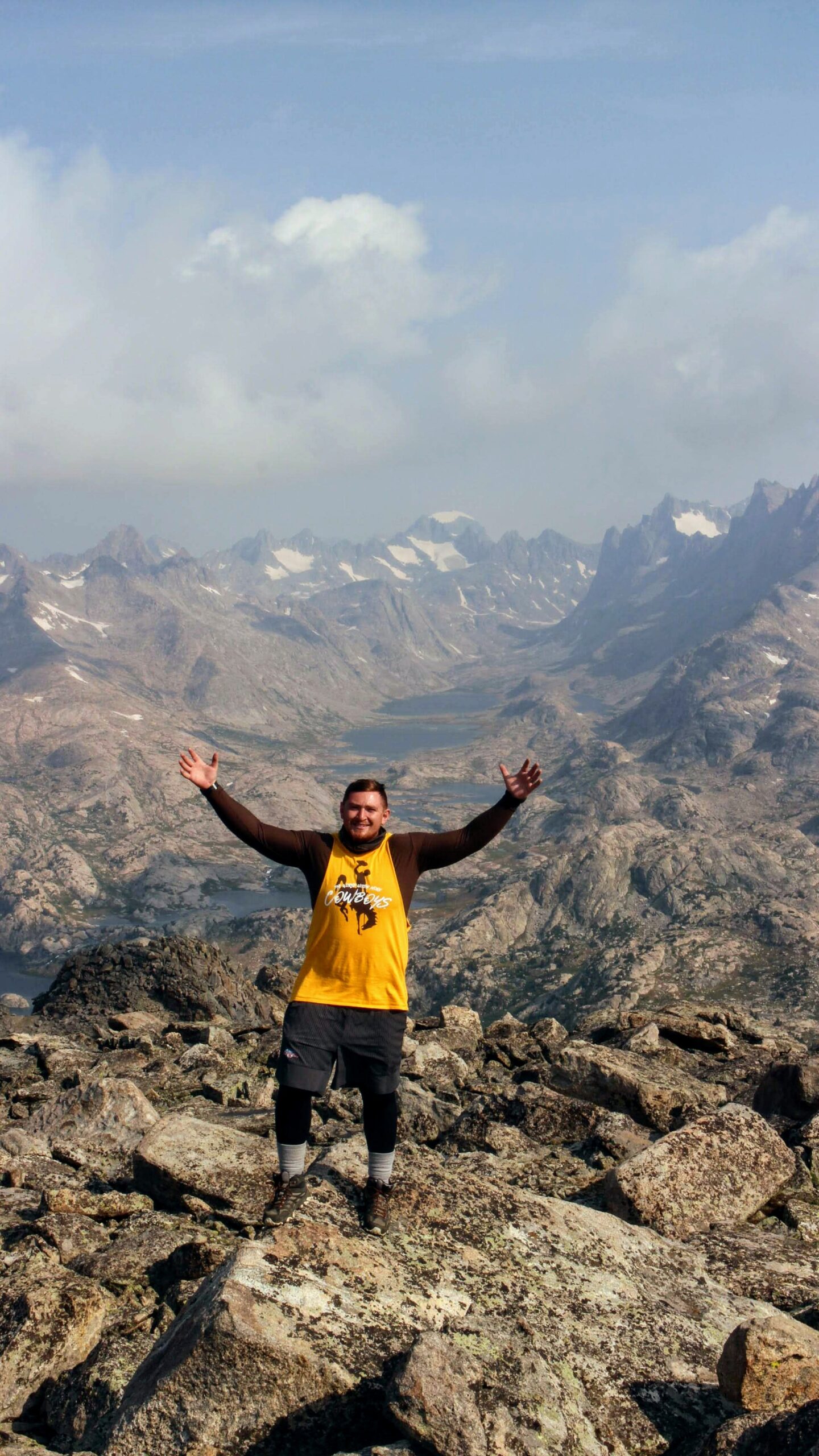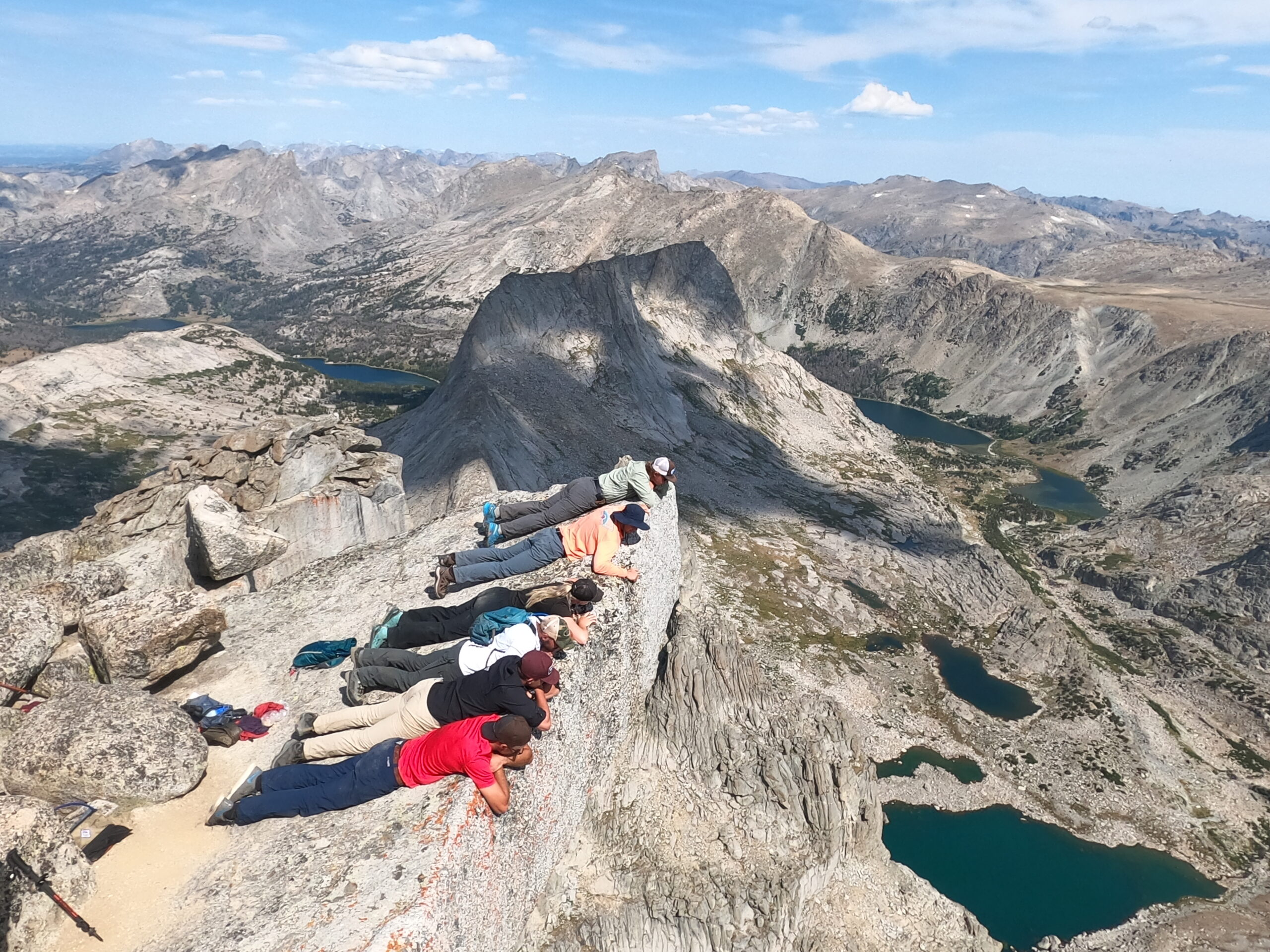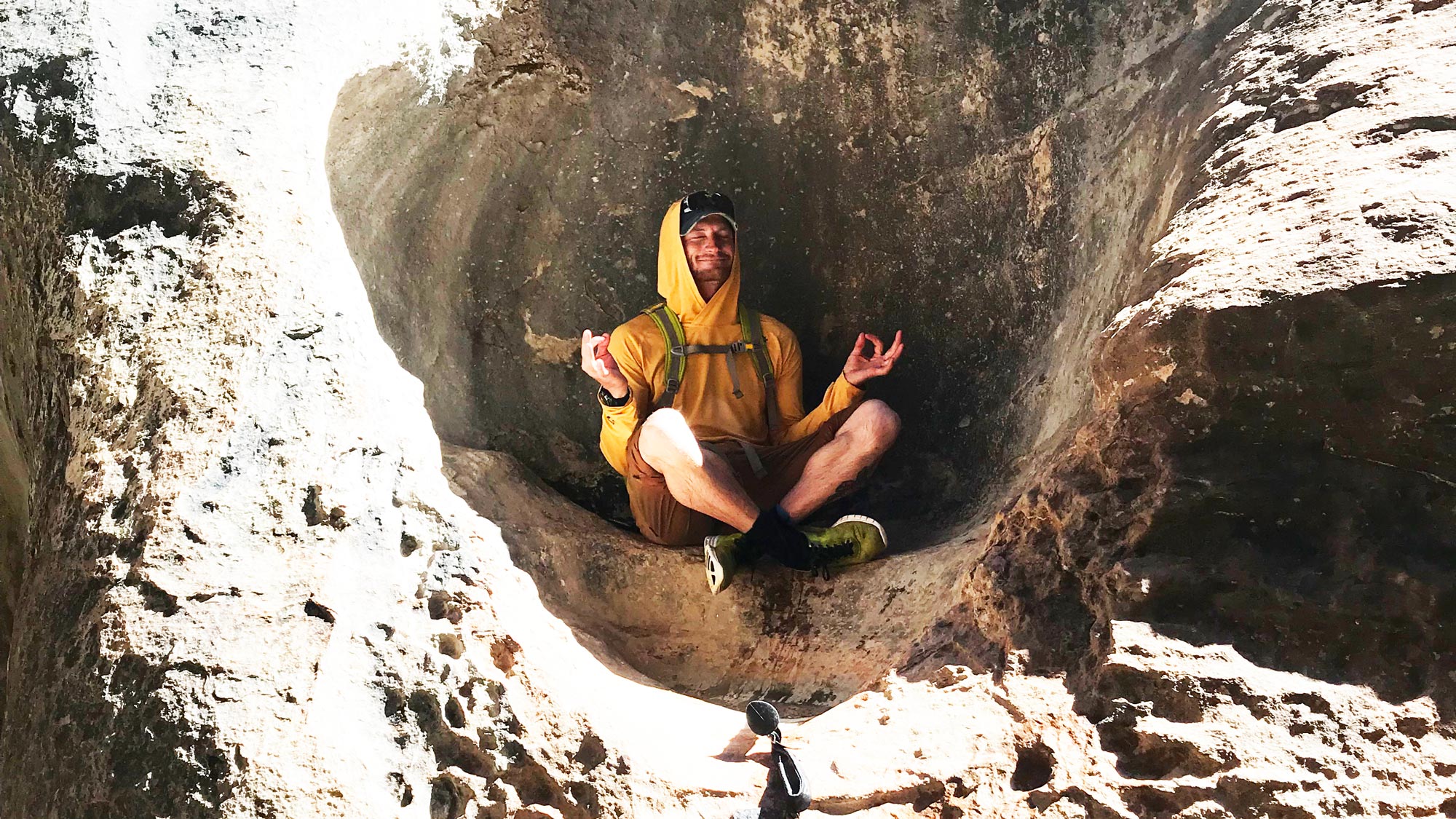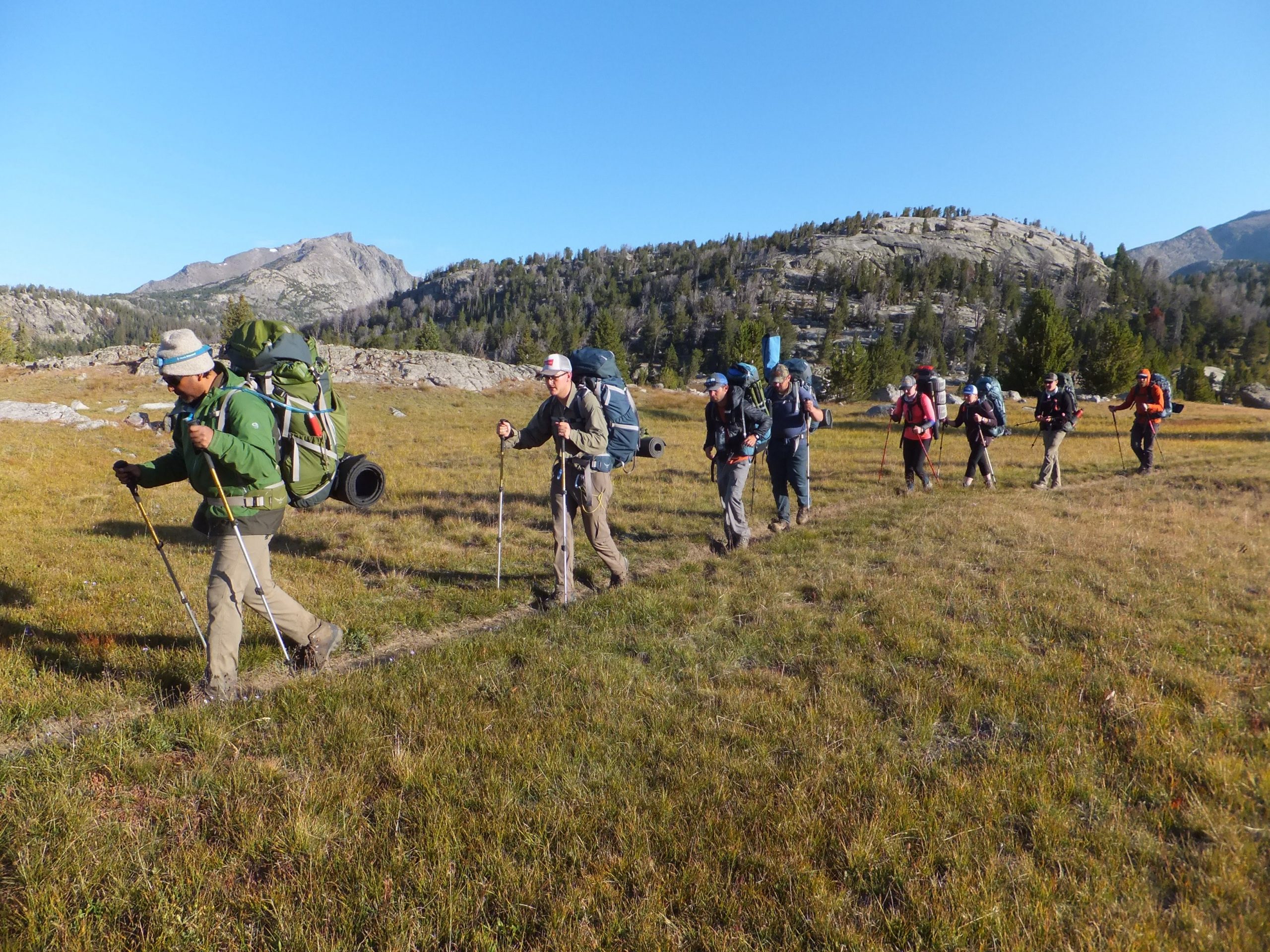When God Speaks in the Silence
You Can’t Hear Him Through All That Noise
Reading this blog maybe challenging. You will prolly be tempted to check your phone multiple times before reading this blog all the way through.
We challenge you to ignore to buzzes, notifications and try to stay in the present of this reading.
God hasn’t stopped speaking. As a society, we are pulled towards distractions, and we have forgotten how to listen. Learn why God has always met people in wild places. [Biblical Examples of Wilderness Transformation]
The Problem We Don’t Want to Admit
We’re addicted to noise. Not just sound noise, but the constant buzz of notifications, the mental chatter of endless options, the soul-crushing weight of always being “on.”
Participants show up at the trail-head completely wired. Phones in hand, earbuds in, already planning their next Instagram post. They’re physically present but mentally scattered across a dozen different digital worlds.
Then something incredible happens. By day three in the wilderness, they’re different people. Present. Alive. Listening.
Listening.
One participant told us, “I didn’t realize how much static was between God and me until it was gone. It wasn’t that God wasn’t speaking, I just couldn’t hear through all the noise I’d surrounded myself with.”
Even Jesus Needed Quiet
Jesus regularly withdrew to lonely places to pray. The Son of God, who had the most important work in history to accomplish, prioritized silence in wild places as essential to His spiritual life.
If Jesus needed wilderness silence to hear His Father clearly, what does that say about us?
But we’ve convinced ourselves we’re too busy, too important, too connected to step away. We treat silence like a luxury instead of a necessity. We’ve made noise our god and wonder why we can’t hear the real One. [Biblical Wilderness Ministry]
What Happens When the Noise Stops
We’ve watched thousands of people rediscover God’s voice in the wilderness. [Finding God in the Wilderness] The pattern varies, but the breakthrough always comes:
• First few days: Restlessness. Where’s my routine? Why do I feel so unsettled? What if I’m missing something important?
• Middle of the journey: Resistance. Fighting the quiet. Filling silence with chatter. Avoiding the deeper questions that start surfacing.
• The turning point: Surrender. Something shifts. Like someone turning down static on a radio and suddenly finding the clear signal underneath.
“I kept checking my pocket for my phone for the first several days,” one participant shared. “It was unsettling at first. But by the middle of the week, I realized I hadn’t thought about social media in days. I was just here, fully here, for the first time in years.” [Alumni Stories]
 The Science Behind the Silence
The Science Behind the Silence
Turns out, your brain literally changes in silence. Scientists have discovered that just two hours of quiet daily leads to new cell development in the part of your brain responsible for memory and learning. Silence doesn’t just feel restorative, it actually regenerates your mind.
But here’s what’s even more amazing. When all the digital noise stops, your brain activates what researchers call the “default mode network”. The part responsible for self-reflection, meaning-making, and moral reasoning. Exactly the mental processes needed for deep spiritual connection.
We’re not making this up. God designed your brain to need silence. The constant stimulation isn’t just annoying, it’s literally rewiring your neural pathways away from spiritual receptivity.
Biblical Silence Isn’t Optional
“Be still, and know that I am God.” Psalm 46:10
That’s not a suggestion. It’s a command. The Hebrew literally means “cease striving” or “let go and relax.” Divine knowledge comes not through more activity but through the stopping of it.
Moses needed Mount Sinai. Elijah needed his cave. Jesus needed the lonely places. They understood something we’ve forgotten. God’s voice is clearest away from the crowds and the chaos.
But we’ve made being busy a badge of honor. We brag about how packed our calendars are, how many notifications we get, how indispensable we are. Meanwhile, the still small voice gets drowned out by our self-importance. [God is Waiting for You in the Wild Places]
When the Breakthrough Comes
Standing beside a mountain lake on our sixth day, one of our participants suddenly started crying. Not from sadness, but from relief.
“I can finally hear myself think again,” she said. “Not just surface thoughts, but the deeper questions I’d been avoiding. And more than that, I can hear God answering them.”
That’s what happens when digital distractions stop competing for your attention. The urgent emails that felt life-or-death back home suddenly seem like what they actually are, a digital noise keeping you from what matters.
Learning to Listen Again
At SROM, we’ve developed practices that help people rediscover God’s voice:
• Solo time, where participants spread out safely but spend hours alone with God and creation. No agenda,  no performance, just availability.
no performance, just availability.
• Digital sabbaths that create rhythm between connection and disconnection, noise and silence.
The Withdrawal Is Real
Stepping away from noise is genuinely difficult at first. The withdrawal symptoms are real:
• Phantom vibrations. Compulsive pocket-checking. The inability to be present. Restlessness that feels like crawling out of your skin.
This isn’t weakness, it’s evidence of how deeply technology has rewired our brains. But here’s the beautiful part, those pathways can be rewired again. The brain that learned to crave constant stimulation can learn to crave silence. [Your Phone is Stealing Your Soul]
“The first day without my phone was honestly terrifying,” one participant admitted. “I felt naked and anxious. But by day four, I didn’t want it back. The silence had become precious instead of scary.”
Bringing Wilderness Home
The challenge is maintaining this connection after returning to a noise-saturated world. But we’ve seen participants create “wilderness spaces” in everyday life.
Morning phone-free hours. Digital sabbaths. Tech-free bedrooms. Notification audits that eliminate 90% of interruptions.
“I can’t always be in the wilderness,” one participant reflected, “but I can bring wilderness practices home. My daily walk isn’t the Grand Canyon, but when I leave my phone behind and walk in silence, I create space for the same God to speak in the same clear way.”
One Step Into Silence
You don’t have to climb Everest to hear God’s voice.
You can start small. Five minutes of silence before checking your phone. One meal without screens. A walk without earbuds. A weekend afternoon with notifications off.
Every impossible journey begins with one step. Every encounter with God starts with one movement toward Him. Moses took one step toward the burning bush. Jesus took one step into the wilderness.
What’s your one step away from noise and toward the God who speaks in whispers?
The Invitation Is Still Open
God is still speaking. In the quiet spaces between notifications. In the silence behind your busy schedule. In the stillness you’ve been avoiding because it feels uncomfortable.
The same God who spoke to Moses on Sinai wants to speak to you. The same God who met Elijah in the gentle whisper wants to meet you. But you have to create space for the conversation.
At SROM, we’ve been privileged to witness these encounters for over 40 years. We’ve seen lives transformed not by more noise but by the radical act of getting quiet enough to listen.
The wilderness is calling. God is waiting. Your phone can wait too.
Are you ready to discover what you’ve been missing in all that noise?
Ready to experience God in the silence?
[Explore SROM Courses] [Get Free Catalog] [Contact Our Team]
The conversation you’ve been longing for is just one step into silence away.